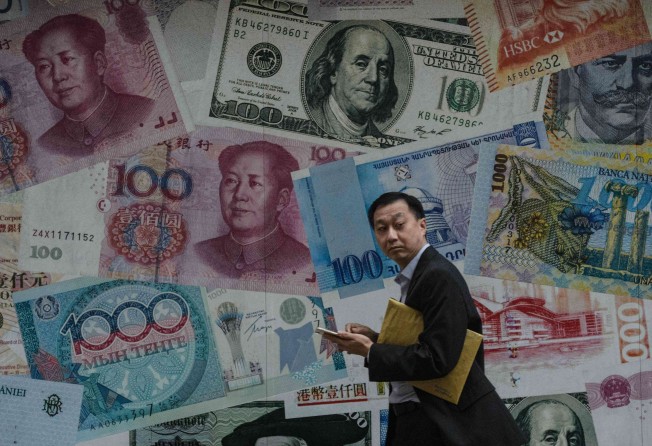What AEOI means for banking customers in Hong Kong

With the arrival of the new year, don’t be surprised if your bank asks for information about yourself and your accounts that you didn’t have to provide before.
These questions signal an important development as banks in Hong Kong and around the world prepare to share certain information with tax authorities. This move towards the automatic exchange of information, or AEOI, based on the Common Reporting Standard released by the Organisation for Economic Co-operation and Development (OECD) in July 2014, reflects a global commitment undertaken by governments in more than a hundred jurisdictions to promote tax transparency and fight cross-border tax evasion.
Under AEOI, banks and other financial service providers are responsible for collecting particular information about their customers. If customers are identified to be tax residents of jurisdictions with which Hong Kong has entered into certain international agreements, information on these customers is shared with local tax authorities and then passed on to the relevant overseas tax authorities automatically and on an annual basis.
Various efforts to promote this sort of tax information exchange internationally have been underway for decades. The movement picked up steam after the 2008 global financial crisis, and especially after US lawmakers passed the Foreign Account Tax Compliance Act, or FATCA, in 2010. Under FATCA, banks around the world are required to provide information relevant to US persons on an annual basis in order to facilitate the enforcement of US tax laws. In 2014, the OECD together with G20 countries approved the Standard for Automatic Exchange of Financial Account Information (or commonly known as the Common Reporting Standard), paving the way for AEOI to go global.
Given Hong Kong’s status as a global financial centre, the Hong Kong government has committed to AEOI along with many other jurisdictions, including the UK, mainland China, Japan, Australia, Singapore and Switzerland, to name a few. Hong Kong’s Legislative Council passed an amendment to the Inland Revenue Ordinance last June, providing the necessary legal framework for Hong Kong to implement AEOI.
Hong Kong is expected to begin exchanging information with selected jurisdictions by the end of 2018. Currently, the list of reportable jurisdictions includes just two countries, namely Japan and the UK, and confirmation for both is still pending approval from the Legislative Council through a negative vetting process. However, the list is expected to grow in time.
So what should you as a banking customer expect? If you plan to open a new account, be aware that banks are now required by Hong Kong law to ascertain the tax residence status of whomever is opening the account. That means your bank might ask you to complete certain additional forms when you try to open an account. It might need to know not just your current address in Hong Kong, but your date and place of birth, for example, and where you pay taxes.
Those people who already have a bank account may be contacted by their bank because it needs more information than it already has on hand to determine their tax residence status and their classification under AEOI.
If you hold a bank account and Hong Kong is your only tax residence, the information collected remains with the bank. Nothing gets reported to the Inland Revenue Department or any tax authorities outside Hong Kong.
If you are a tax resident elsewhere and that jurisdiction has signed an international agreement with Hong Kong, the bank will be required to report certain account information for that account holder to the Inland Revenue Department. That includes personal data such as the name, date of birth and taxpayer identification number of the account holder as well as information related to the bank account such as the account number, account balance and interest earned, among other things. The Inland Revenue Department then exchanges the information with the relevant overseas tax authority.
The implementation of automatic exchange of financial account information in tax matters is now a global phenomenon
The implementation of automatic exchange of financial account information in tax matters is now a global phenomenon. Hong Kong is doing its part as a responsible member of the international community to support the roll out, providing the legal basis for AEOI and concluding international agreements that put it into practice. When they ask you for certain extra documentation, the Private Wealth Management Association’s member firms are doing their part as well by ensuring they can fulfil their AEOI obligations.
More information about AEOI and its application in Hong Kong, including pamphlets, answers to frequently asked questions and background about the legal framework supporting the local implementation of AEOI, can be found on the Inland Revenue Department’s website. Customers can request that banks provide access to their personal data, and can make use of account servicing channels to check and update their tax residency status as needed. Bear in mind, however, that banks are not able to offer any tax advice to their customers, who should seek such advice as needed from professional legal and/or tax advisers.
Peter Stein is managing director of the Private Wealth Management Association